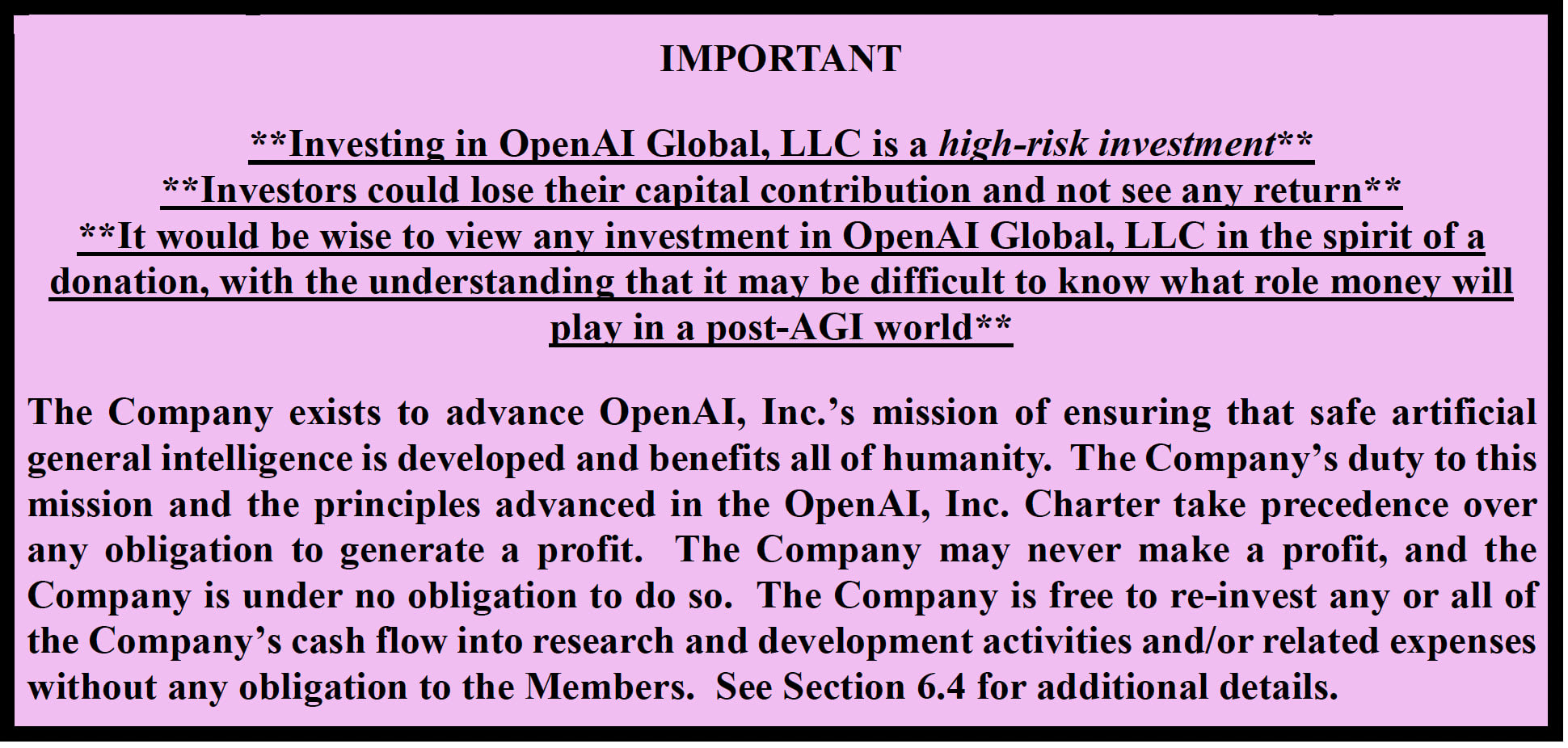
My definition of “capitalism” is:
An economy with capital markets (in addition to markets in goods and services).
Most of my friends and acquaintances generally don’t have a precise definition of “capitalism”, but use the word to mean something like:
The economic status quo.
Before I realized this, these different definitions of “capitalism” led to conversations that were a lot less productive than they could have been. I argued from the pro-capitalist position, relying on an abstract view of economic systems, they argued from an anti-capitalist position, motivated by concerns about concrete problems like economic inequality, and we ended up talking past each other.
Not all socialists are socialist
This semantic underdetermination (or, in simpler terms, vagueness) isn’t just relevant to laypeople. For example, the leftist economist Thomas Piketty advocates a series of reforms, including a steep wealth tax that would prohibit dynastic wealth, that he bundles under the name “participatory socialism”. None of these reforms is to abolish capital markets (or markets in goods and services).
Some political parties, such as France’s Parti socialiste, use the term “socialism” interchangeably with “social democracy”, which is a reformist school of thought that does not call for the abolition of capital markets. Other political parties, like Norway’s Sosialistisk Venstreparti, seem to prevaricate between social democracy and revolutionary socialism or Marxism.
This helps explain why a Pew Research survey found that 44% of Americans aged 18-29 had a positive view of socialism, while only 40% had a positive view of capitalism. Among Democrats in the same age bracket, 58% had a positive view of socialism versus 29% for capitalism. I doubt that Marxism-Leninism is that popular in America. These people more likely have in mind the Nordic model than the Soviet Union.
The economics of the long-term future
Supposing superhuman AGI is invented this century or, alternatively, radical human brain upgrades become possible, economic growth will presumably accelerate and the productivity and automation of labour will presumably increase dramatically. In this scenario, it’s not clear if the already tenuous “capitalism”/“socialism” distinction will hold. Particularly if policies like universal basic income and universal basic inheritance are enacted, it’s unclear if we will still recognize the gestalt of capitalism or socialism.

If people still care about replacing capital markets with democratic institutions like publicly-owned investment banks or federated workers’ syndicates, then this might become a real possibility in the 21st or 22nd century. In a context of economic abundance, the costs of such an arrangement — particularly to economic growth — due to its inefficiencies could become acceptable. Alternatively, advancements in technology could enable some futuristic form of economic planning that aggregates information about individuals’ fine-grained preferences and desires, much as markets do today. In either case, there could be meritocratic competition between capital allocators within these democratic institutions (or competition between different institutions). Supposing markets in goods and services remain, this would be a form of market socialism.
Conclusion
Depending on your demographics and the demographics of your social networks — particularly if you and your friends are young, metropolitan, and university-educated, and especially if you're also LGBT — you may know a lot of people who criticize capitalism or who identify as anti-capitalist. Regardless, there are a lot of such people out there on the wider Internet. If you don't want to find common ground with those people, fine, that's up to you. But if you do, there is room for agreement, or maybe just sympathy, or at least less polarization.
Crossposted from Progress Forum: https://progressforum.org/posts/Bjjobtu8rc5ti6Gux/capitalism-talking-past-each-other
I'm surprised you didn't bring up the most commonly cited defintions of capitalism and socialism.
Capitalism is the private ownership of the means of production.
Socialism is the public ownership of the means of production.
Whilst there's a great deal of variation in how people envision their form of captialism/ socialism, the above are the generally agreed upon dictionary definitions of the two economic systems.
And OP discusses market socialist systems which allow capital markets but not private capital!
This isn’t a petty distinction. It allows the definer to claim all of the benefits of markets and dodge the more negative effects of private ownership, pitting centralised price controls as inherent to anti-capitalist systems. And in the worst cases (not here) it allows people to motte-and-bailey their way out of the devastating effects of wealth inequality by claiming that ‘capitalism’ actually just means markets.
I mention all this because I see this definition a lot in rat-adjacent circles and it frustrates me, because people usually just want to talk about why disgusting levels of wealth inequality are necessary or even permissible, and then get a non-sequitur defence of markets in response.
To make it concrete, the OP’s friends are interested in economic inequality. This is absolutely an inherent consequence of private capital ownership, and therefore capitalism. In a debate, then, you’d want to start defending private capital ownership rather than markets. So I think the ‘talking past each other’ arises from a faulty definition, but just not the one that the OP identified.
How do you have capital markets without private capital?
To clarify, in the post, I discussed a hypothetical form of market socialism without capital markets.
If the capital is not privately owned (private property) but rather socially owned, for example public property (owned by a state entity), collective property (owned by a collective), cooperative property (owned by a co-op), etc...
But how is public ownership of firms compatible with ownership of firms being exchanged on markets?
I think of publicly traded firms as "publicly" (collectively) owned in the sense that many members of the public own shares of them directly or indirectly through things like ETFs and mutual funds. It gets complicated by the fact that ownership of most publicly traded companies is concentrated among a few stockholders.
Because governments can trade. E.g., if the governments of the Netherlands and Germany are looking to sell some firms they own, and the governments of Belgium and Luxembourg are giving competing offers to buy those firms, we have a market without the firms being privately owned.
I agree these definitions are the most canonical ones, but their existence has not prevented the terminological confusion we presently find ourselves in. Participatory socialism and social democracy, for example, do not entail the public ownership of the means of production.
It is confusing I agree, but the confusion isn't helped by coming up with further conflicting definitions.
I've studied & work in finance, and as I understand things, the term capital markets really just refers to the market of longer-term debt/equity instruments (e.g. bonds, shares etc). That term sits in contrast to money markets which refers to short-term instruments (e.g. repos, bills which are just bonds that mature <= 90 days).
There's nothing particular about capital markets that are particularly more objectionable to socialists than say the money market, so your emphasis on capital markets is misplaced in my opinion.
RE participatory socialism, I was not familiar with this idea, but from a quick read it does seem to advocate for the majority of the economy to operate under public or worker ownership of the means of production. So I think this would generally be considered socialism under the official definition of socialism. Happy to be corrected if I've misunderstood Piketty's system.
Social democracy, whilst it may involve some elements of socialism (welfare state, unions, large public sector, state ownership of some companies), and may be embraced by socialists as a transitory economic system towards socialism, is generally considered a form of capitalism. Historically it gets more complicated, where the terms social democracy and democratic socialism were interchangeable (e.g. the precursor to the Communist Party of the Soviet Union, was the Russian Social Democratic Labour Party). But with history, they've come to mean different things.
So in summary, I think you are wrong to point to Participatory socialism and social democracy as not involving public ownership of the means of production, or being socialism respectivel. And I think you are furthering the confusion of these ideas by emphasizing the importance of capital markets in this discussion.
I do applaud you looking into this and the ideas of Piketty & the nordic model. But be careful about theorising too much on your own when there is a wealth of existing work produced by more informed/ dedicated people (including academics, commentators) you could leverage. For example, jacobin, the socialist magazine, has a few articles on what AI means for socialists: https://jacobin.com/2024/01/workers-labor-artificial-intelligence-technology An article like that could have been a good starting point for you to support/ critique in the forum post.
Keep looking into this stuff - glad to see it being posted on the progress forum also. These discussions are needed more for sure.
Unfortunately, I believe there’s more terminological confusion between us than I currently have the energy to try to clear up.
As other users have noted, the presence of unregulated markets does not necessarily make a capitalist system. Market socialism is a thing, and mutualism is one of the oldest kinds of anarchism.
The systems of the EZLN and Rojava are both minimally regulated and explicitly anti-capital. It's worth noting that the EZLN has increased quality of life for Zapatistas compared to other peasants who live in similar conditions under the Mexican government.
Who said anything about unregulated?
Executive summary: The author argues that imprecise definitions of "capitalism" lead to unproductive conversations, and proposes his own precise definition along with scenarios for potential future economic systems.
Key points:
This comment was auto-generated by the EA Forum Team. Feel free to point out issues with this summary by replying to the comment, and contact us if you have feedback.
(-___-)
This seems like a good summary! Was this downvoted merely because of a wrong pronoun?